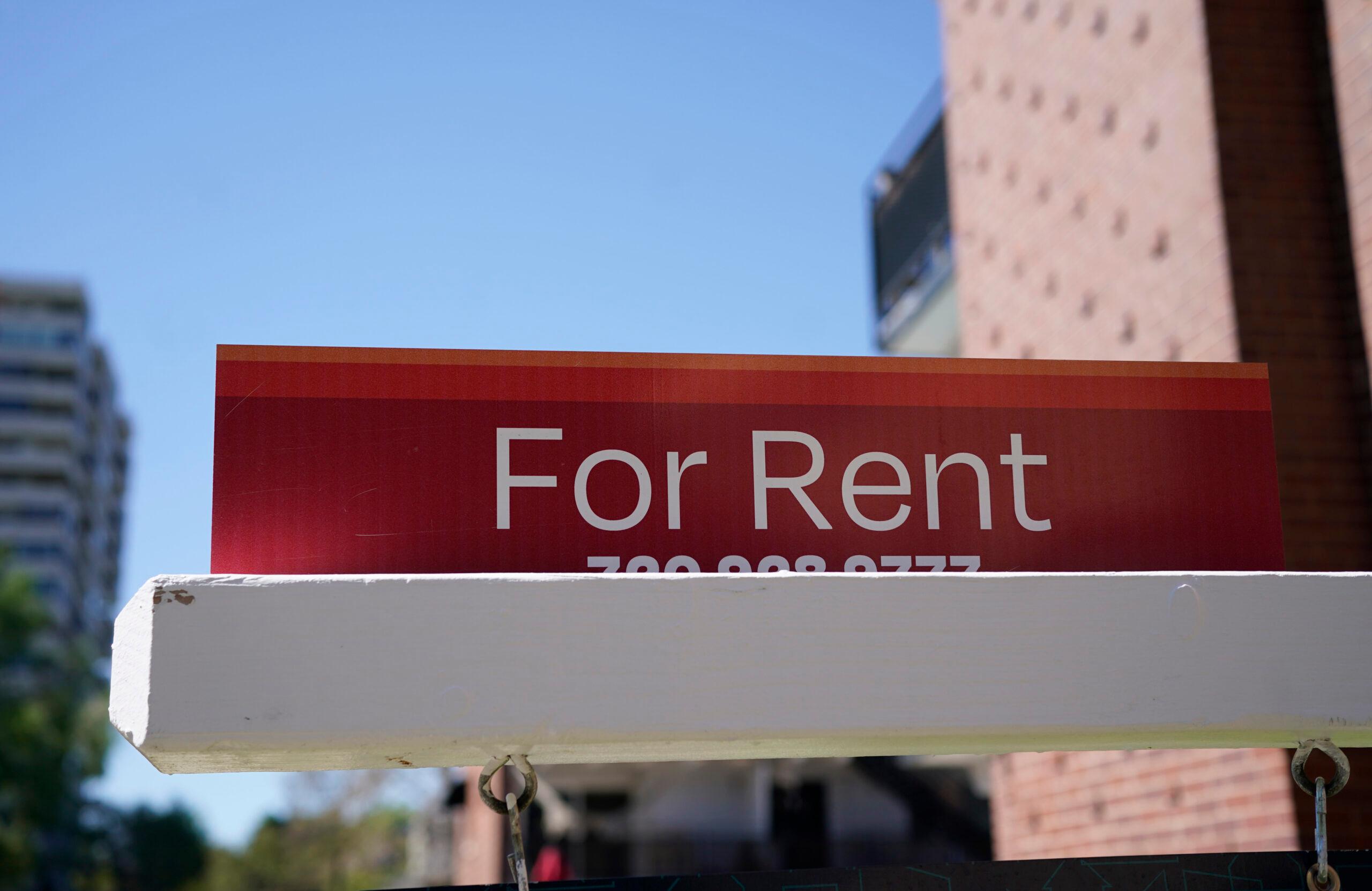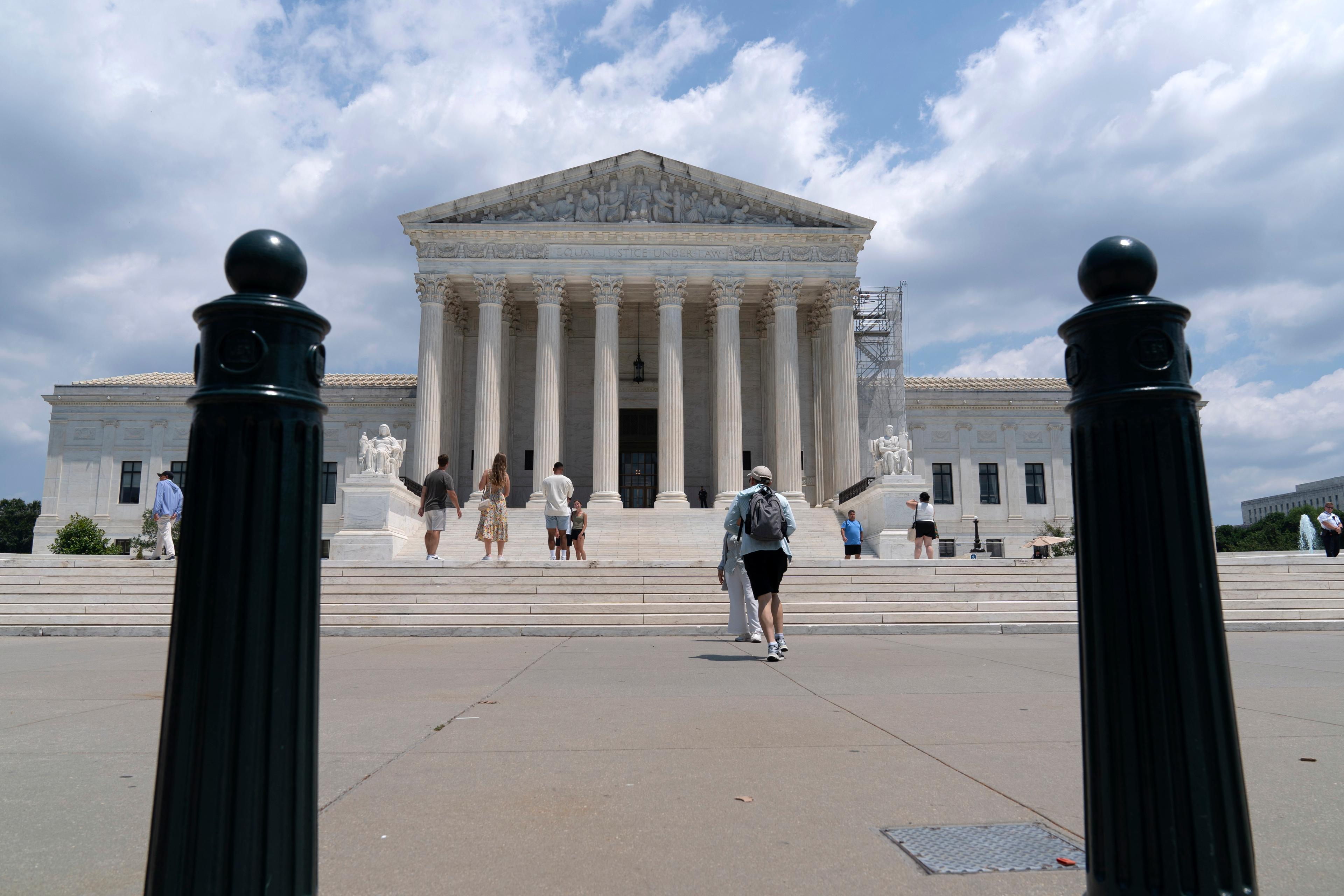
This story was originally published by The Colorado Sun.
By Brian Eason, The Colorado Sun
This story was produced as part of the Colorado Capitol News Alliance
Colorado Democrats want to block landlords from charging renters an array of hidden fees, part of a wide-ranging legislative and legal effort to protect consumers against what critics see as abuses of corporate power.
The effort got a boost last week from a top Federal Trade Commission official, who sent a letter to Gov. Jared Polis urging the state to build on recent federal action to crack down on the proliferation of so-called “junk fees” across the economy. Junk fees are ones that are mandatory for consumers, but left out of the listed price of a good or service, such as concert tickets, delivery services and rent.
The push in Colorado is being led by some of the legislature’s most progressive Democrats, who view deceptive corporate practices as a major driver of the state’s affordability challenges.
This week, Rep. Emily Sirota, a Denver Democrat, is expected to introduce a bill that would make clear in state law that it’s a deceptive trade practice for businesses to leave mandatory fees out of their advertised price.
A draft of the bill provided to The Colorado Sun singles out landlords in particular. The measure would prohibit rental housing providers from assessing certain fees, like charging for things like pest control that are part of a landlord’s basic responsibilities under state habitability laws. It would also levy fines against landlords that violate the bill’s provisions.
“What we are trying to do is — as much as possible — make sure that rent is representative of the cost to live there,” Sirota told The Sun in an interview. “Because what we find is that tenants end up paying hundreds of dollars more a month on top of rent for a whole litany of things that I think could be classified as junk fees.”
Fee disclosures are just one part of Democrats’ consumer agenda this year. Other bills introduced so far include two proposals to limit the application fees that child care centers can charge, a bill to ban the use of certain computer algorithms to set rent prices and a measure empowering the state attorney general and local governments to sue rental companies over violations of landlord-tenant laws. The onus for fighting landlords that violate their responsibilities has historically fallen on tenants themselves.
The Democrats’ agenda is expected to face stiff resistance from business groups.
In an interview, a lobbyist for the Colorado Apartment Association said landlords don’t oppose price transparency, but the junk fee bill goes too far by assessing stiff fines for mistakes and banning some charges entirely.
The lobbyist, Drew Hamrick, described another bill — Senate Bill 20, which would empower the government to bring civil and criminal complaints against rental companies over violations of landlord-tenant laws — in apocalyptic terms.
“It’s a planet killer,” he told The Sun. “It is really a problem. You cannot criminalize being a rental housing provider and not have significant problems.”
The Colorado Chamber of Commerce won’t take a formal position on the junk fee bill until after it’s introduced. But in a statement, the group’s lobbyist Meghan Dollar said the chamber is “concerned about the broad scope of sectors impacted and the potential for increased legal liability for employers.”
It’s not clear how a new crop of legislators will vote on the proposals this year. Business-backed candidates did well in last year’s House elections, including the June Democratic primary. But voters also replaced some moderate Democrats in the state Senate with lawmakers who are more critical of corporate practices.
Meanwhile, statehouse Republicans lay the blame for the state’s high cost of living at the feet of the government — not businesses. In a news conference this week, GOP leaders took aim at government fees and regulations, calling to roll back things like grocery bag fees, vehicle registration charges and green energy standards in housing construction in order to save families money. They’ve also sought to limit lawsuits brought against businesses, saying they contribute to rising costs and have a chilling effect on some parts of the economy, like condominium construction.
Polis — a former tech entrepreneur — tends to position himself somewhere in the political middle on business issues. A spokesperson told The Sun that the governor’s office is reviewing the FTC’s letter, but did not comment further Thursday afternoon.
Colorado steps in as FTC steps back
Legislative Democrats’ consumer protection agenda comes at a tenuous moment for such efforts at the federal level.
Under the Biden administration, FTC Chair Lina Khan sought to crack down on an array of business practices the commission considers anticompetitive, including junk fees and corporate consolidation, like the failed merger of grocery giants Albertsons and Kroger.
On Wednesday, the FTC’s director of Bureau Consumer Protection sent Polis and top lawmakers a letter recapping the agency’s efforts to regulate fees, noting that in December, the commission banned deceptive fees in live-event ticketing and short-term lodging. But the letter suggested the state should go further.
“Although the FTC’s final rule is limited to two industries, the commission found that unfair and deceptive fee practices are prevalent throughout the economy,” Samuel Levine wrote. “These practices can be especially harmful to low-income consumers looking for rental housing or other essentials, and a comprehensive law would address these fees market-wide.”
Under President Donald Trump, who took office Monday, consumer advocates expect federal regulators to be more permissive of corporate fees and mergers.
“Without the FTC and Consumer Financial Protection Bureau on the beat here protecting working people, it’s absolutely essential that the state take on the mantle,” said David Seligman, the executive director of Towards Justice, a nonprofit legal organization based in Denver. “The FTC letter (to Polis), as I read it, sort of says, ‘look, we have political constraints.’ I understand the FTC letter to be suggesting that states really need to go further than the FTC rule.”
A study released last year by the Biden White House estimated that consumers spend billions of dollars each year on fees it considers unfair, including $276 million in apartment application fees.
Fees, of course, are legal in and of themselves. But the FTC argues it becomes an unfair form of competition when they’re hidden from consumers.
Seligman uses the example of a family applying for an apartment with a listed rent of $1,200. Tack on $300 a month for things like payment processing fees, community area maintenance fees and pet rent and suddenly the price is $1,500 — $100 more than they would’ve had to pay another landlord that was up-front about charging $1,400 in total.
“That’s not fair to the tenant,” Seligman said. “It's not fair to people who are just trying to budget to make ends meet. It’s not fair to the mom-and-pop landlord either.”
The FTC stopped short of issuing new rules regulating housing fees. But it did sue one of the country’s largest landlords, Invitation Homes, which agreed in a settlement to list all mandatory fees in a home’s advertised rental price.
- Colorado’s Republican House members pushing for state to repeal some of its immigration laws
- Democratic lawmakers and grassroots groups highlight support for immigrants as enforcement crackdown looms
- ‘If you’re born here, you are a citizen.’ Colorado’s Attorney General on why he’s suing President Trump over birthright citizenship
“It adds up.”
Notably, the Colorado Attorney General’s Office already considers undisclosed fees a potential violation of consumer protections laws.
Sirota said her bill strengthens existing law by making it “exceedingly clear” that undisclosed mandatory fees are a deceptive trade practice.
“I think that is the way that most Americans feel — that we in every transaction at this point are being soaked,” Sirota said. “It adds up. It’s like $5 here, $5 there. It doesn’t seem like you can make a single transaction anymore without some additional fee that you're paying.”
But the bill’s main focus is rental housing.
Landlord groups say many of the fees renters complain about are clearly spelled out in their lease. And sometimes, these are things like credit card processing fees that are being passed on from third-party vendors to the renter, rather than a profit-maker for the landlord itself. A recent draft of the bill would prohibit fees related to payment processing.
Consumer advocates say it’s not enough to disclose those fees in the lease alone. By the time many tenants see a lease, it’s often too late for them to back out. By that point, they may have spent hundreds of dollars on nonrefundable application fees and background checks, all for a unit that can cost hundreds of dollars more per month than the advertised rent.
“It is really hard for people to budget, because you think you’re going to pay one price and you pay another, and then that price is higher,” said Zach Neumann, co-founder of the Community Economic Defense Project, which represents tenants in eviction court. “You suddenly don't have the money you thought you have, and so you’re at risk of eviction. You're taking out money from a payday lender. You’re borrowing from family because the purchase you thought you were making is not actually the purchase you've made.”
Hamrick, the apartment association lobbyist, doesn’t object to the bill requiring landlords to disclose the total cost of renting up front, including mandatory fees.
“I don’t think that's an unreasonable requirement at all,” Hamrick said. His biggest problem with the legislation is the enforcement mechanism.
Under the bill, a tenant can issue a demand letter seeking a refund of illegal fees. If landlords don’t rectify the mistake within two weeks, they can face penalties of up to three times the fee, or a minimum of $100 per affected resident.
“Imagine you're one of the biggest housing providers out there, and you have, say, 20,000 residents in this state, and you make a mistake,” Hamrick said. At a minimum fee of $100 per person, he said, “you just created a $2 million class action lawsuit, plus attorneys fees, because somebody put a ‘For Rent’ sign up there and didn’t include a total price on it — and that's just way too much of a penalty.”
Hamrick says no enforcement mechanism should be needed at all.
“The protection that’s built into the market is that there’s 738,000 rental units out there, and if you don’t like one, there’s a different one waiting right around the corner,” he said. “That’s the way the free market is supposed to work.”
Colorado’s top attorney disagrees.
On Thursday, Attorney General Phil Weiser joined the FTC in filing suit against Greystar, one of the nation’s largest apartment owners, for misleading tenants about the price of rent. Greystar has denied the allegations, telling The New York Times it follows longstanding industry practices in separating fees from rent.
This story was produced by the Capitol News Alliance, a collaboration between KUNC News, Colorado Public Radio, Rocky Mountain PBS, and The Colorado Sun, and shared with Rocky Mountain Community Radio and other news organizations across the state. Funding for the Alliance is provided in part by the Corporation for Public Broadcasting.









